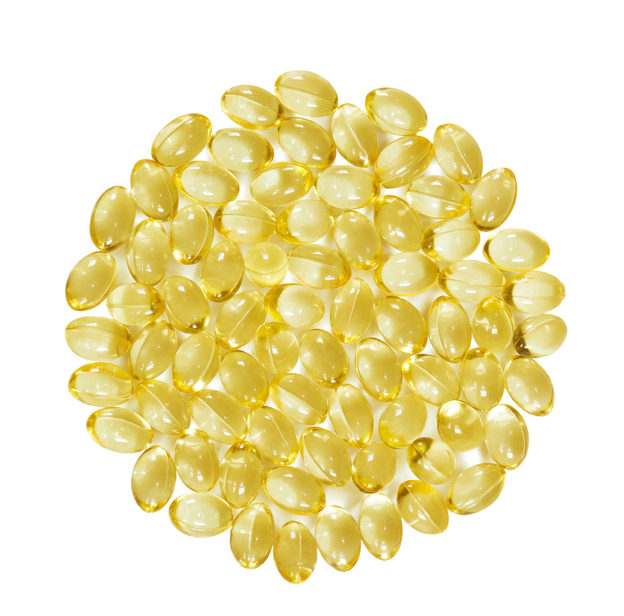By David Blyweiss, M.D., Advanced Natural Wellness
April 19, 2021
You’ve probably seen the conflicting news articles about vitamin D and COVID over the last several months. On one side of the coin are the nay-sayers. They say there is not enough data to suggest vitamin D can prevent or treat COVID. That there’s no long-term clinical evidence… and that anyone claiming as much is spreading misinformation.
Well that’s a bunch of crap.
There’s one study that showed around 500 people who had a vitamin D deficiency were more likely to test positive for COVID than people who had normal, sufficient or extra-sufficient levels.
MD Exposes the Hidden Danger to Your Eyes

When your eyesight starts to fail, it's a real problem. Suddenly you can't go to the grocery store... you can't get to the doctor if you have an emergency... you can't meet your friends for dinner…
Your "regular" doctor doesn't have time to keep up with the latest research. And the same goes for eye doctors. They go to school to learn how to fit you for glasses and contacts, but have no way of preventing the damage and loss of eyesight that threatens your freedom and independence.
Let me show you something that explains a LOT about how your eyes work.
In my FREE Special Report, I'll show you a HUGE, untapped resource for your eyes that safely and naturally restores clear, effortless eyesight.
Click here to get started...
We know that people with vitamin D deficiency who have COVID have more chance of acute respiratory failure and a higher risk of dying.
In one of the smaller studies, they gave 50 people who were hospitalized with COVID high doses of vitamin D (calcifediol). Another 26 people got the placebo. Only one of the people given vitamin D needed treatment in the ICU. In contrast, 13 of the people who weren’t given it had to go to the ICU.
In other words, half of the people who weren’t given vitamin D went to the ICU compared to only one person among those who received the vitamin!
This may be why more than 200 doctors and scientists around the world are petitioning governments and public health officials to step up and produce vitamin D guidelines, identifying vitamin D as “by far the most easily and quickly modifiable risk factor with abundant evidence to support a large effect” against COVID.
Ultimately, supplementing with vitamin D is an inexpensive and easy way to give yourself an extra layer of protection. And with so many people in the U.S. already experiencing vitamin D insufficiency, it’s low-hanging fruit.
Who is at Most Risk for Vitamin D Deficiency?
Are You Suffering From...
- Love handles and a pot belly
- Romance that isn't what it used to
- Forgetfulness and inattention
- Low (or no) strength and endurance
- A sex drive that's shifted into neutral...or worse
If so...you may have Mature Male Burnout. Click here to discover more about this unique condition and what you can do about it.
Anyone can become vitamin D deficient, but it’s more common to have deficiency or insufficiency in people who are Latin, Hispanic and African American. That’s because the melanin, which increases the darkness of the skin, affects the conversion of vitamin D. And it could be one of the reasons why these groups have been so disproportionately affected by COVID.
We also know that COVID is more common in people who are overweight and in older people. So if you’re an older, obese, black male, you have a higher risk of the virus. And if you also have vitamin D deficiency… well that’s just terrible. The more obese you are, the more deficient you are.
But no matter what your skin type, age or weight, something as simple as where you live could define your vitamin D levels. In particular, those people who are in the higher latitudes are getting inadequate sun exposure and have more vitamin D deficiency.
We know that people who live above a certain latitude have a greater risk of multiple sclerosis, cancers, neurocognitive dysfunction and other health conditions. And we know that vitamin D is helpful in treating all of those.
Here’s What I Recommend
My best suggestion is to go get tested for vitamin insufficiency. All you have to do is ask your doctor for a 25-hydroxy vitamin D test. Set your goal for maintaining levels of at least 50-65 ng/ml. (If you have been diagnosed with an autoimmune disease closer to 85 ng/ml is better.)
- If your levels are 30 ng/ml or lower, take at least 8,000 IU of vitamin D3 in the cholecalciferol form each day and retest in three months. (For best results, look for one that has a low dose of vitamin K2 and a bit of vitamin A too).
- If your levels are 31 to 40 ng/ml, supplement with 5,000 IU daily for three months. Then retest.
- If your numbers are over 40, you’re not deficient. Still, it’s a good idea to take 2,000-4,000 IU daily to maintain sufficient levels.
There’s absolutely no reason to be skeptical about supplementing with vitamin D. It won’t make you bulletproof against COVID, but it will support your immune system and increase your level of protection against all viral infections and a number of other health concerns.
Sources:
Meltzer DO, Best TJ, Zhang H, Vokes T, Arora V, Solway J. Association of Vitamin D Status and Other Clinical Characteristics With COVID-19 Test Results. JAMA Netw Open. 2020;3(9):e2019722.
Angelidi AM, et al. Vitamin D Status Is Associated With In-Hospital Mortality and Mechanical Ventilation: A Cohort of COVID-19 Hospitalized Patients. Mayo Clinic Proceedings. Published online Jan 2021.
Entrenas Costa LM, et al. Effect of calcifediol treatment and best available therapy versus best available therapy on intensive care unit admission and mortality among patients hospitalized for COVID-19: A pilot randomized clinical study. J Steroid Biochem Mol Biol. 2020;203:105751.
Sintzel MB, Rametta M, Reder AT. Vitamin D and Multiple Sclerosis: A Comprehensive Review. Neurol Ther. 2018;7(1):59-85.
Garland CF, Garland FC, Gorham ED, et al. The role of vitamin D in cancer prevention. Am J Public Health. 2006;96(2):252-261.
Russ TC, et al. Geographical Variation in Dementia Mortality in Italy, New Zealand, and Chile: The Impact of Latitude, Vitamin D, and Air Pollution. Dement Geriatr Cogn Disord. 2016;42(1-2):31-41.






